
How to Organise Your Desk for Study or Work
Since the beginning of the pandemic, more of us than ever are working from home. But whether you work from your home office once or twice a week, spend most of your time in the office or are studying at home, it’s essential you have an organised desk.

You may have heard the long-standing quote “a messy desk is a messy mind”. Although it’s hard to pinpoint the origin of this phrase, it rings true. Famously, Albert Einstein quipped back–”if a cluttered desk is a sign of a cluttered mind, of what, then, is an empty desk a sign?” This isn’t to say you should have a messy desk, but rather, not an empty one. By organising your files, digital or physical, your stationery and the area surrounding your desk, you will experience a clearer mind, ready to take on work, think up new ideas and solve tricky problems.

First of all, it’s worth mentioning that not everyone has the space for a home office at home, but it is important to work in a clean and tidy space separate from areas where you usually relax and kick your feet up. If you’re working in your living room, for instance, avoid the couch or coffee table and work from your kitchen table. Similarly, if you need to work in your bedroom, make sure you’re sitting upright, on a chair at a desk. By doing this, you’ll be in the right mindset for work, and work more productively and efficiently.

We’ve gathered our top tips on how to organise your desk at home to minimise stress and make the most out of your work day.
Declutter Your Desk
First up: declutter! If your desk looks anything like the picture below, it’s time to declutter and tidy. From stacked books to pens to multiple coffee mugs, it’s easy for desks to become a cluttered mess.

Assign a Home for Every Item
Starting the day with a tidy desk helps you begin work or study with a clear mind. Clutter begins when items don’t actually have anywhere to go. Usually, this is because of a lack of effective storage.

Store away items with desk accessories like desk caddies, storage boxes, pen holders and pencil cases, desktop drawers, file racks and letter trays. Group similar items together so you know where to find what you need any time. Consider keeping your desk accessories on a nearby filing cabinet, office cabinet or rolling cart to avoid clutter becoming ‘organised clutter’.
Keep Only Essentials On Your Desk
While it’s important that every item has a home, this doesn’t necessarily have to be on your desk. To minimise clutter, keep only what you need in front of you, on your desk. Limit yourself to just one pen instead of the whole pen holder. Only keep desk organisers on your desk if you use these items frequently throughout the day, or you have no other space for them.

Add Character to Your Space
Okay, there’s a little leeway here to keep non-essential on or around your desk. Add character and personality to your space, from houseplants to wall art, ceramic pots and vases and bookends. Choose decor that inspires and motivates you. This doesn’t have to be a painting with the text ‘work hard, play hard’, but can be anything that makes you feel at ease, comfortable and like yourself.

Go Digital
One of the easiest ways to keep your physical space neat and tidy is if you work entirely on your computer or laptop. Without the paperwork, pens and other physical files and stationery, there are barely any essentials other than the digital device you need to keep on your desk.
If primarily work in the digital realm, declutter your computer, laptop or tablet–whatever device you use for work. This can be organised files into folders, deleting old files you no longer need, and organising your weekly calendar and tasks.
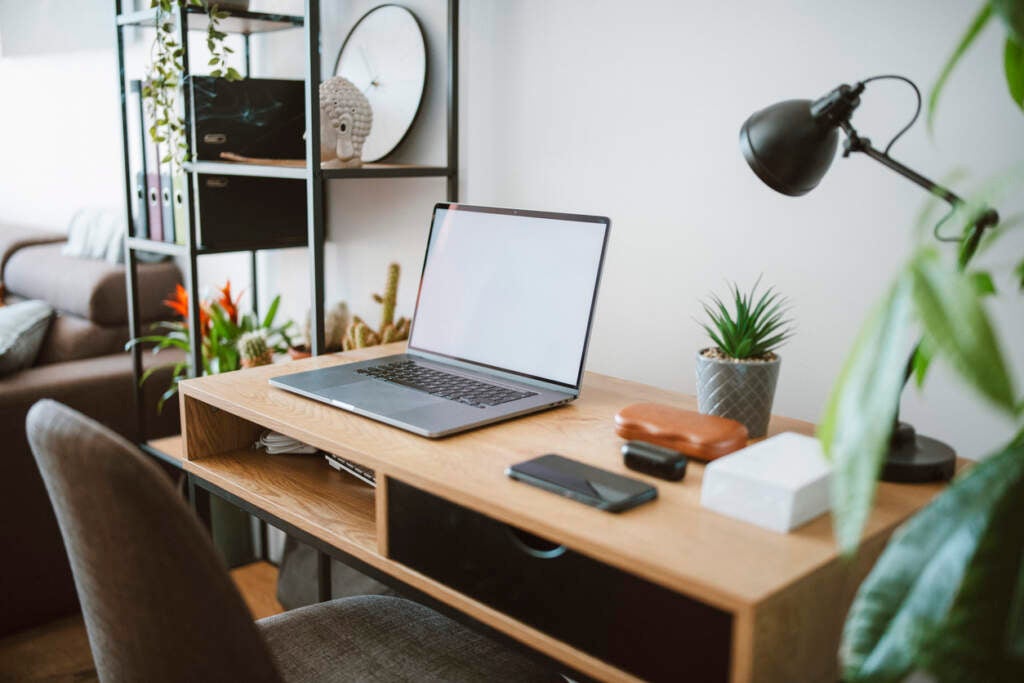
How to Keep Your Desk Organised
Have no storage space and wondering how to organise your desk? No drawers make it pretty tricky to assign a home to every item.
The simple answer to how to organise your desk? Adequate storage solutions. From desk drawer dividers and keyboard trays to filing cabinets, wall shelves and hooks, there are plenty of ways you can create a tidy, organised office at home. Here are some of our desk organisation ideas.
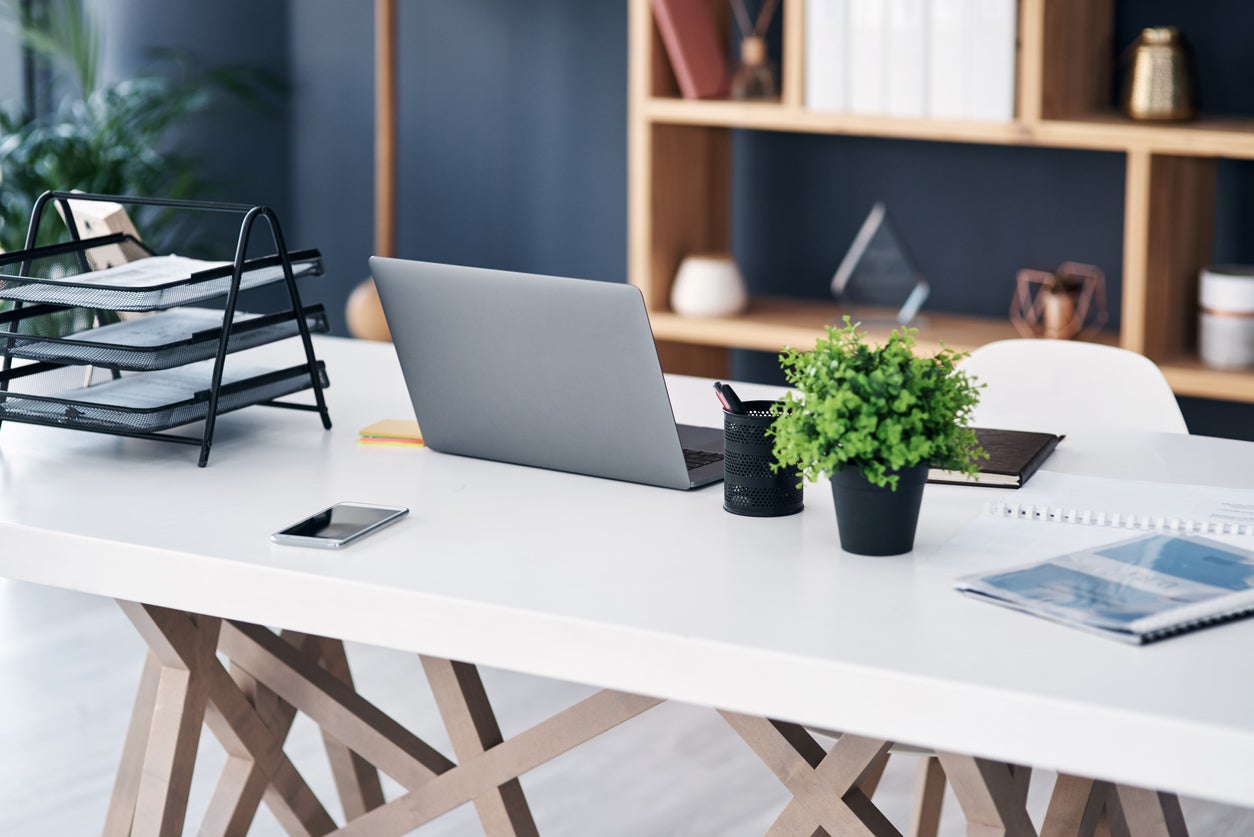
Desk Drawer Organisers & Dividers
If your desk comes with drawers, consider purchasing desk drawer dividers. This will prevent your drawers from becoming the dreaded ‘junk drawer’ or from becoming difficult to find what you need.
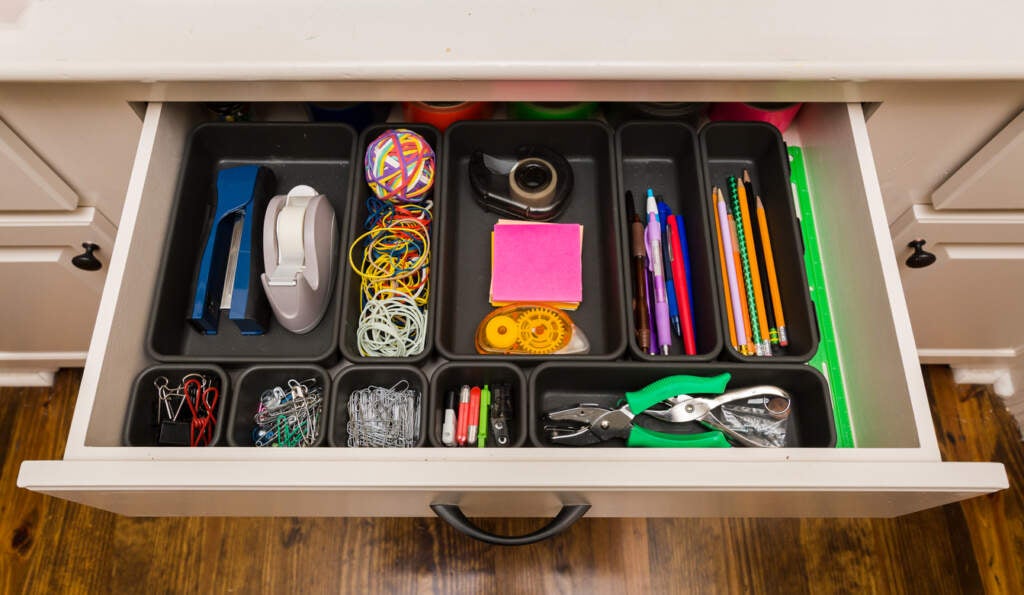
Wall Shelves & Hooks
If you lack space on your desk to store desk accessories, consider installing wall shelves. If you aren’t able to do this, open shelves are a great way to store your supplies.
Depending on the kind of work you do, wall hooks can be incredibly helpful. Hang headphones, cords and wires and other accessories you use daily.
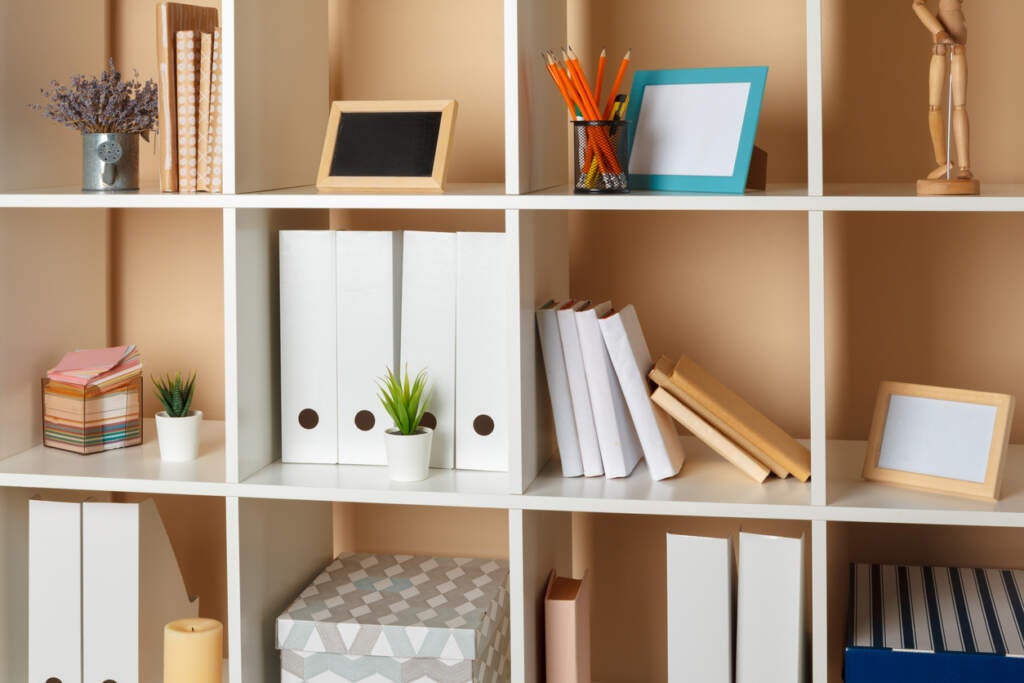
Office & Filing Cabinets
Keep important documents, files and supplies you don’t need every day in an organised filing cabinet. This will help keep paperwork off your desk so you have more room to think and work.

Keyboard Trays
If your keyboard is taking up too much space, consider buying an attachable keyboard tray.

Computer Stands & Holders
Invest in a laptop stand or holder. If you mount your device, you may find you have more arm space. Not only will this free up space, but you can adjust the height so you’re not straining your neck or hunching down to read your screen.
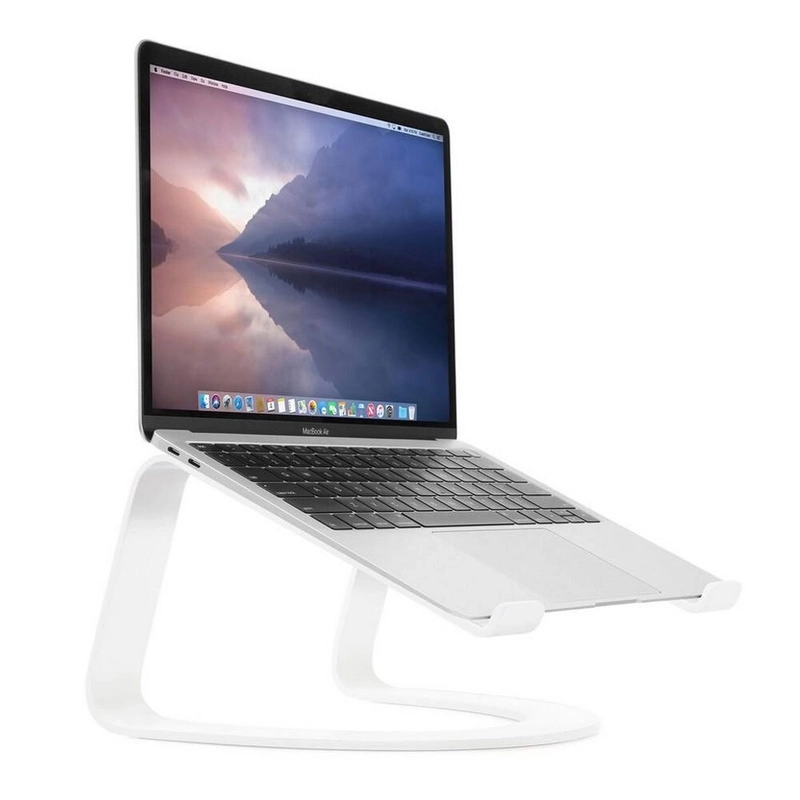
Organised Desk, Organised Mind
With these easy steps, you can create a space to work or study without clutter or mess. The next challenge is maintaining it. Life is busy, and sometimes tidying up is our last priority.
When everything on or surrounding your desk has a home, tidying up is simple. Ultimately, this is the takeaway: keep only everyday essentials on your desk (like your device and maybe a pen and paper). Make sure your supplies have a home, which requires adequate shelving, drawers and desk accessories. By doing this, keeping your space organised is simple and easy!








